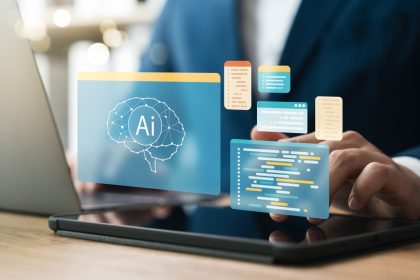The landscape of work is undergoing a dramatic transformation as artificial intelligence advances at an unprecedented pace. While this technological revolution brings exciting opportunities, it also poses significant challenges for workers in certain sectors. Understanding which careers face imminent disruption has become crucial for anyone planning their professional future.
Telemarketing’s final chapter
The sales industry is witnessing a fundamental shift as AI systems take over traditional telemarketing roles. Advanced natural language processing has enabled automated systems to handle sales calls with remarkable efficiency. These AI solutions can now engage in personalized conversations, respond to customer inquiries, and maintain consistent performance around the clock.
Modern AI systems excel at tasks that once defined telemarketing: maintaining databases, following up with leads, and delivering sales pitches. Their ability to learn from each interaction while never experiencing fatigue or frustration makes them increasingly attractive to businesses seeking to optimize their operations.
The automation of data entry
Data entry positions are rapidly becoming obsolete as sophisticated AI systems transform information processing. These intelligent systems can now scan, interpret, and categorize vast amounts of data with minimal human oversight. The precision and speed of AI in handling repetitive data tasks far surpass human capabilities.
The technology now exists to process everything from handwritten documents to complex spreadsheets automatically. Machine learning algorithms continue to improve their accuracy while eliminating the human errors that naturally occur during monotonous tasks.
Retail cashiers face digital displacement
The retail sector is experiencing a significant shift toward automated checkout systems. Major retailers are increasingly adopting cashierless technologies that allow customers to complete their purchases without human interaction. Advanced AI systems can track product selection, process payments, and manage inventory simultaneously.
These automated systems offer advantages that traditional cashier setups cannot match: reduced wait times, lower operational costs, and consistent service quality. The technology continues to evolve, making human cashiers increasingly obsolete in modern retail environments.
Warehouse automation acceleration
The warehouse industry is witnessing a dramatic transformation through robotics and AI integration. Automated systems now handle everything from inventory management to order fulfillment with remarkable efficiency. These technologies operate continuously, maintaining perfect accuracy while eliminating human error.
Modern warehouses are becoming highly automated environments where AI-driven robots handle the physical tasks of sorting, packing, and shipping. The precision and speed of these systems make them increasingly attractive to companies looking to optimize their operations.
Customer service transformation
The customer service landscape is shifting dramatically as AI chatbots and virtual assistants become more sophisticated. These systems can now handle complex customer interactions, provide detailed product information, and resolve common issues without human intervention. Their ability to operate continuously while maintaining consistent service quality makes them increasingly attractive to businesses.
Advanced AI systems can now understand context, remember previous interactions, and provide personalized responses that rival human customer service representatives. Their capacity to handle multiple inquiries simultaneously while maintaining accuracy makes them a compelling alternative to traditional customer service teams.
The future of work adaptation
As AI continues to reshape the job market, understanding how to adapt becomes crucial. Workers in vulnerable sectors should consider developing skills that AI cannot easily replicate. These include creative thinking, emotional intelligence, and complex problem-solving abilities that remain distinctly human domains.
Building resilience in an AI world
Professional resilience in the age of AI requires focusing on uniquely human capabilities. Skills like strategic thinking, interpersonal communication, and innovative problem-solving become increasingly valuable as routine tasks become automated. Developing these competencies can help create career stability in an evolving job market.
Strategic career planning
For those currently in or considering entering these vulnerable fields, strategic career planning becomes essential. This involves identifying growth sectors where human skills remain irreplaceable and pursuing opportunities that combine technical knowledge with distinctly human capabilities.
Embracing technological change
Rather than resisting technological advancement, professionals should seek ways to work alongside AI systems. Understanding how to leverage AI tools while developing complementary skills can create new career opportunities even as traditional roles disappear.
The path forward
While certain jobs face obsolescence, new roles continue to emerge in the AI economy. Success in this evolving landscape requires adaptability, continuous learning, and a willingness to embrace change. By understanding these trends and preparing accordingly, workers can position themselves for success in the AI-driven future.















